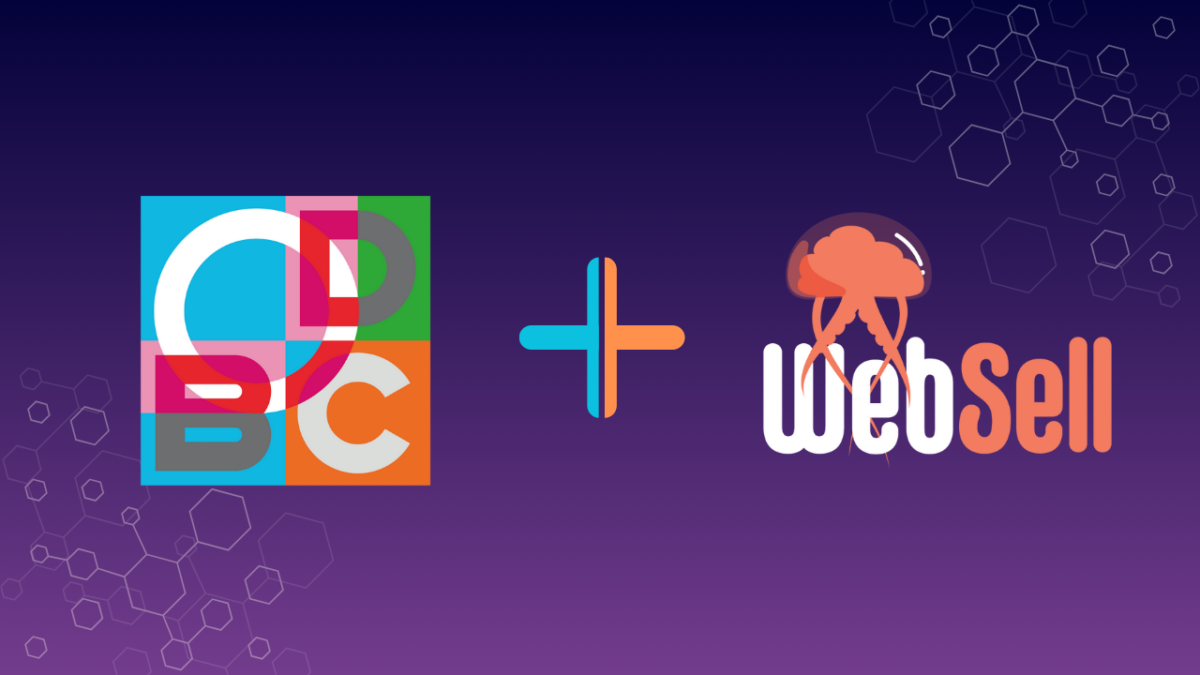When it comes to B2B e-commerce, choosing the right platform can make or break your operations. For companies running Microsoft Dynamics 365 Business Central, the biggest question is: Should you use a general-purpose platform like Shopify Plus, or a purpose-built integration like WebSell?
Both can power online selling. The real question is: Which one makes more sense when Dynamics 365 Business Central is at the center of your operations?
This article looks at that question from a Business Central first point of view, especially for B2B and mixed B2B/B2C brands.
Who this comparison is for
This guide is most useful if you:
- Already run or plan to run Dynamics 365 Business Central
- Sell to B2B customers, or a mix of B2B and B2C
- Care about accurate inventory, complex pricing, and ERP workflows
- Want to avoid a fragile stack of connectors, apps, and agencies just to keep data in sync
If you simply want a lightweight, D2C only storefront with basic catalog needs, Shopify may be enough. If your ERP is the beating heart of your business, the trade offs look very different.
1. Integration with Dynamics 365 Business Central
WebSell was built specifically for Microsoft Dynamics 365 Business Central. Our integration is direct and native, no middleware or third-party system required. Product, pricing, and inventory data flow seamlessly between your ERP and your WebSell store in real time.
WebSell integration highlights:
- Two-way sync for products, customers, inventory, and web orders
- Orders appear in Business Central as native sales orders
- Automatic updates for pricing, stock levels, and customer details
- Real-time tax, freight, and payment sync
- Regional configurations for US, UK, Ireland, and Canada
Shopify Plus, on the other hand, can connect to Business Central Online through Microsoft’s built-in connector, which is a solid option for simpler setups.
However, for more advanced environments, such as multi-store retailers, complex B2B workflows, or legacy on-premises systems, Shopify implementations often depend on external middleware (like Patchworks, Celigo, or eBridge) to manage that complexity. That adds cost, configuration work, and another layer of support to manage.
👉 Learn more about our Dynamics 365 integration
2. B2B features where it really matters
While Shopify Plus offers B2B features through add-ons or its wholesale portal, WebSell delivers full B2B capability right out of the box, directly synced with your ERP.
WebSell’s Built-In B2B Tools:
- Customer-Specific Pricing & Discounts synced directly from Dynamics 365
- Account Balance Payments and pay-on-account functionality
- Payment Method Control by customer group or account type
- Company Accounts & Roles with tiered permissions
- Quick & Bulk Ordering from CSV or reorder lists
- Multiple Storefronts for separating B2B and B2C
- Units of Measure & Item Matrix Support for variant and wholesale ordering
Shopify Plus supports customer groups and price lists but doesn’t mirror Business Central’s full pricing or account management logic without extensive customization or third-party apps.
3. Product and data management
In a Shopify world, you typically manage product data in multiple places. Some attributes in the ERP, some in Shopify, and some in other apps like PIMs or search tools.
Over time, it is easy for inconsistencies to creep in, especially if multiple teams and vendors all touch different parts of the stack.
WebSell aims for a simpler model:
- Business Central holds the core item data: attributes, extended descriptions, images, pricing, and stock
- The WebSell plugin makes that data available to the webstore in a web friendly way
- The Inventory Management page lets you flip items online, tweak web naming, and manage flags without leaving BC
You do not have to learn a separate product database or fight conflicting records. Your ERP data flows through to the web, with a light layer of e-commerce specific configuration.
4. Checkout, payments, and shipping
WebSell’s checkout options are designed for both B2C speed and B2B flexibility:
- Freight, flat rate, and LTL shipping supported
- Carrier integrations with FedEx, UPS, and USPS
- Real-time tax sync from BC or Avalara
- Custom checkout flows for on-account or invoice-based buyers
Shopify Plus offers fast checkout and a wide choice of gateways but usually needs custom scripting or apps to handle B2B-specific terms and invoicing.
5. Implementation and ongoing support
Shopify Plus
With Shopify Plus you are usually working with:
- Shopify as the platform
- One partner for the Shopify build
- Another partner or tool for ERP integration
- Possibly a third agency for marketing and paid media
This can be very flexible and is attractive for brands with large internal teams, but it also means:
- More vendors to coordinate
- Less clarity about who owns which issue
- A higher chance of “it is the other system” when problems appear between the ERP and store
WebSell
With WebSell you get a single vendor for:
- The e-commerce platform
- The Business Central integration plugin
- The webstore design and implementation
- Custom development when a specific integration or feature gap needs to be closed
That means:
- One team to configure both the integration and the store
- One support contact for questions that cross ERP and web
- The ability to request platform level features if your scenario justifies it
For many Business Central customers and partners that simplicity is a major advantage.
6. Marketing, SEO, and growth tools
Both WebSell and Shopify Plus include marketing tools, but WebSell goes further for data-driven retailers running complex ERP environments.
WebSell’s marketing suite includes:
- SEO-optimized templates and site structure
- Paid search management with WebSell’s marketing team (average ROAS in 2025: 1188%)
- Email & content marketing campaigns
- Marketplace integrations (Amazon, Google Shopping, Instagram Shopping)
Shopify Plus offers app-based marketing integrations, but every add-on means another fee, setup, and data connection to maintain.
👉 Read more: Improve your ROAS with smarter ad spend
7. AI-powered features (coming soon)
WebSell is investing in AI-powered tools that take e-commerce performance to the next level for Dynamics 365 users:
- Product recommendations based on customer history
- Dynamic pricing optimization
- Replenishment program insights for recurring orders
- Buy Box tracking for Amazon sellers
With Microsoft and OpenAI leading the way on ERP intelligence, WebSell is positioning itself as the AI-ready e-commerce solution for Dynamics users.
👉 Learn more: AI in e-commerce: what to expect in 2025
8. Total cost of ownership
While Shopify Plus starts around $2,000/month, most merchants end up paying far more after adding:
- Third-party connectors
- Paid apps for B2B logic
- Design and integration agencies
WebSell is an all-in-one partner. Our team handles setup, design, marketing, and custom development, all internally.
With WebSell, you are consolidating:
- Platform and integration into one service
- B2B features that are built to work with Business Central data
- Optional marketing and custom development under the same roof
For organizations that live and die by accurate ERP data and complex B2B flows, that consolidation can reduce both risk and cost over time.
Final verdict: WebSell for serious B2B integration
If you are a Dynamics 365 Business Central customer, your ERP is not just a data source. It is the operational heart of your business. Your e-commerce platform needs to respect that.
- Shopify Plus offers a powerful, flexible storefront with many apps and partners, but often depends on extra layers of integration for complex Business Central or B2B scenarios.
- WebSell gives you an e-commerce platform that is built around Business Central, with integration, storefront, and services delivered by one team that understands ERP driven commerce.
If you are planning a new Business Central e-commerce project or reassessing your current setup, it is worth looking closely at how much work is happening between your ERP and your webstore. The fewer moving parts, the easier it is to grow.
WebSell and Shopify Plus both help you sell online, but only WebSell helps you run your entire business online.
📞 Ready to see it in action?
Request a demo to see how WebSell connects your Dynamics 365 system to your e-commerce store.
👉 Book your personalized demo
Get the latest e-commerce tips and news
-

WebSell Partners with ODBC to Expand Dynamics 365 Business Central E-commerce Across Europe
WebSell is delighted to announce a new strategic partnership with ODBC (Onward Dynamics Business Central), strengthening our ability to deliver fully integrated e-commerce solutions for Microsoft Dynamics 365 Business Central customers across Europe. This partnership brings together two complementary offerings. WebSell provides a purpose-built e-commerce platform designed specifically for Dynamics 365 Business Central, while ODBC
-

Why Refreshing Your E-commerce Website Design Matters More Than Ever
Your website is never “done”. In e-commerce, your webstore is your shop window, your sales assistant, and often your first impression. And just like a physical store, if it starts to look dated, cluttered, or difficult to navigate, customers notice fast. The internet is constantly evolving. Design standards change, customer expectations rise, devices shift, and
-

Large Language Model Optimization (LLMO) – How to Rank in AI-Driven Search
Large language models (LLMs) are AI systems trained on vast amounts of data to understand and generate human language. Both generative and conversational search are powered by LLMs: LLMs don’t search the web in real time (unless they use retrieval methods). Responses are based on patterns in their training data, which comprises billions of words
Meet the Author
Straight from the horse’s mouth.